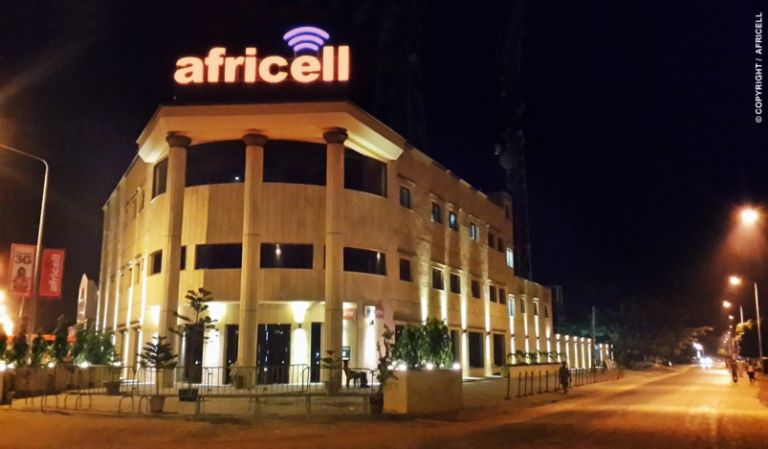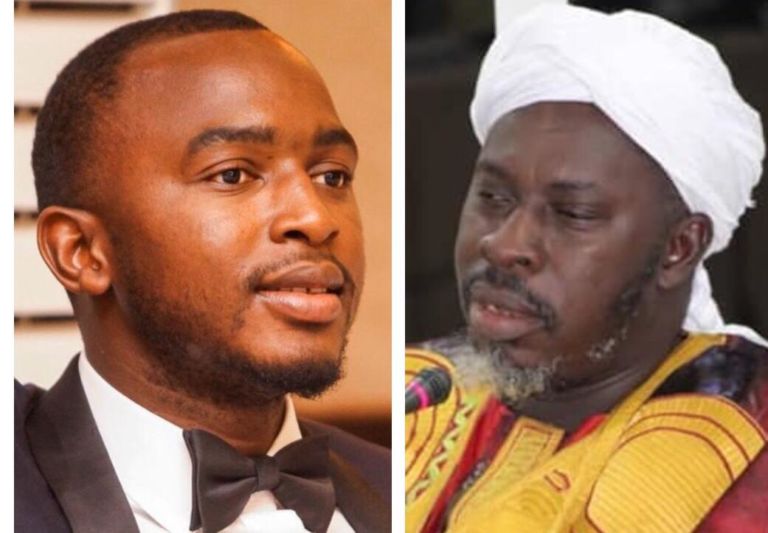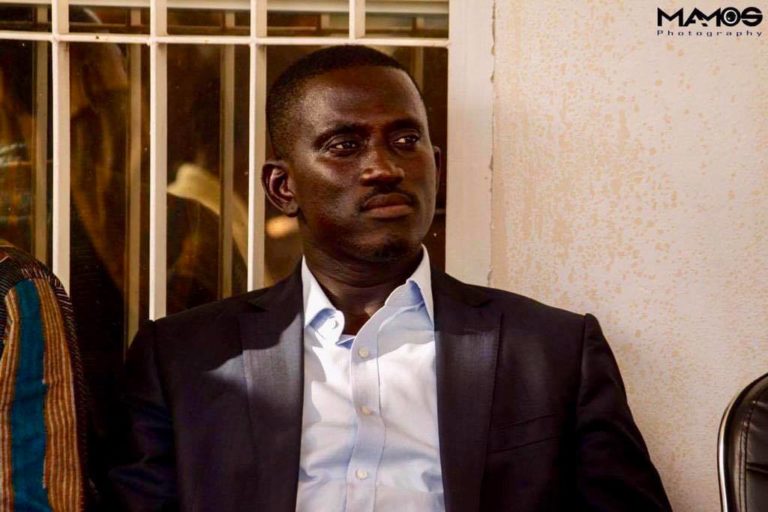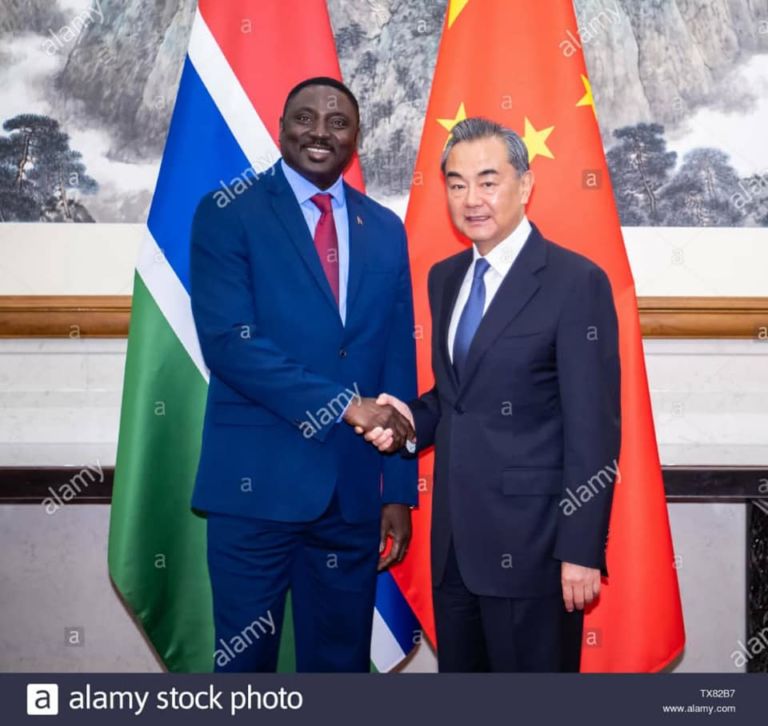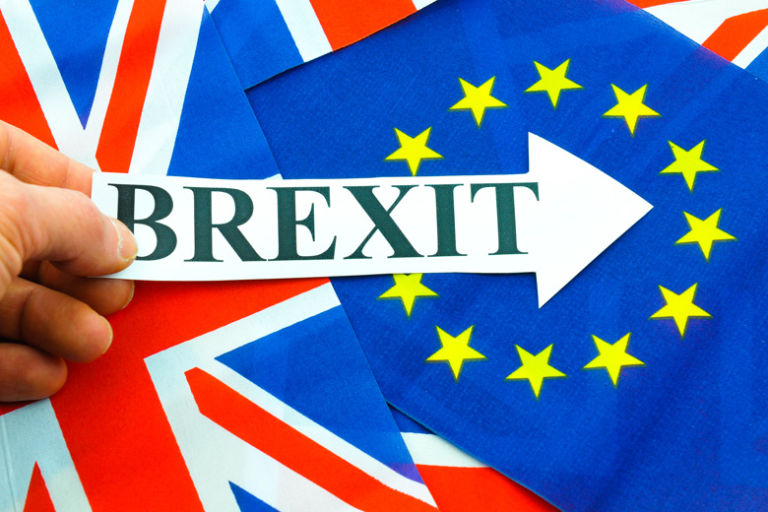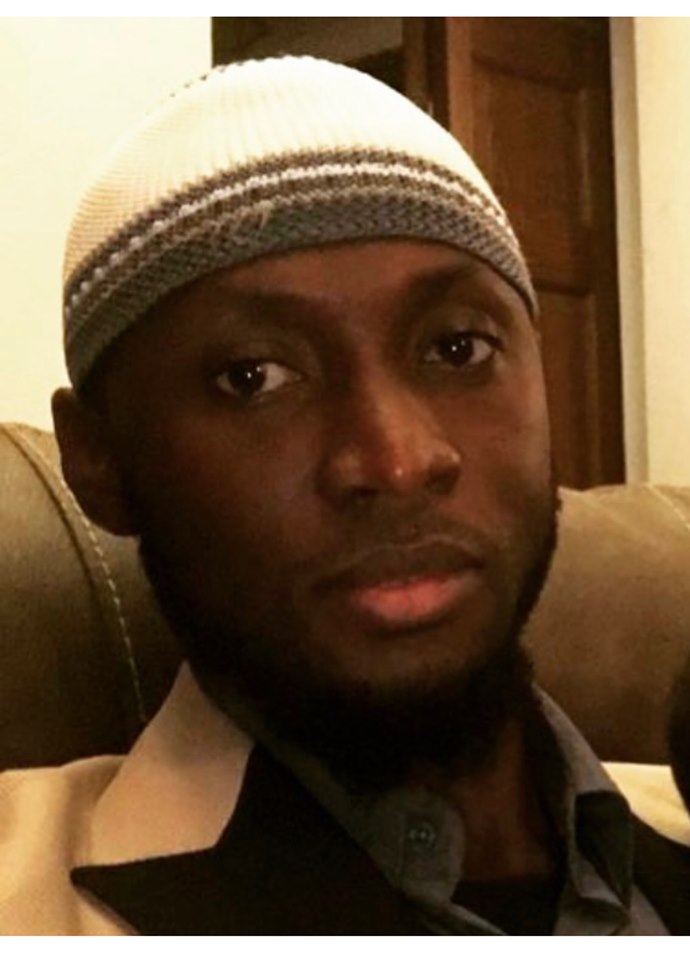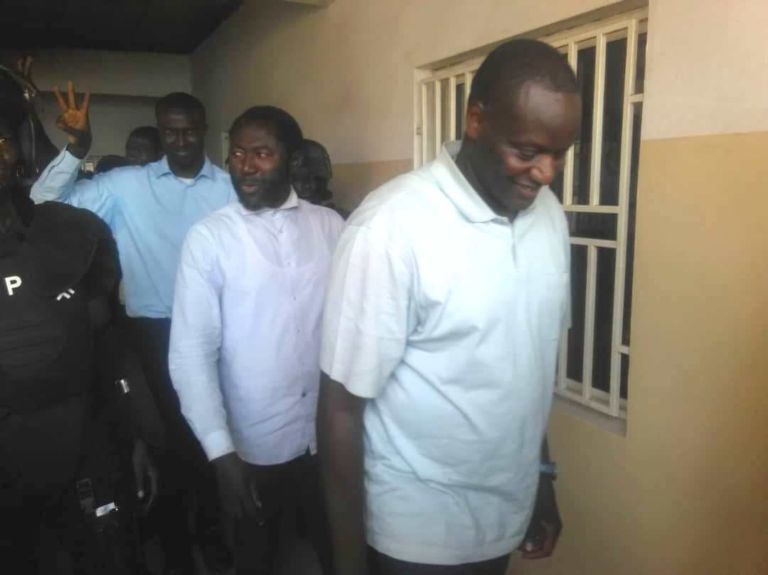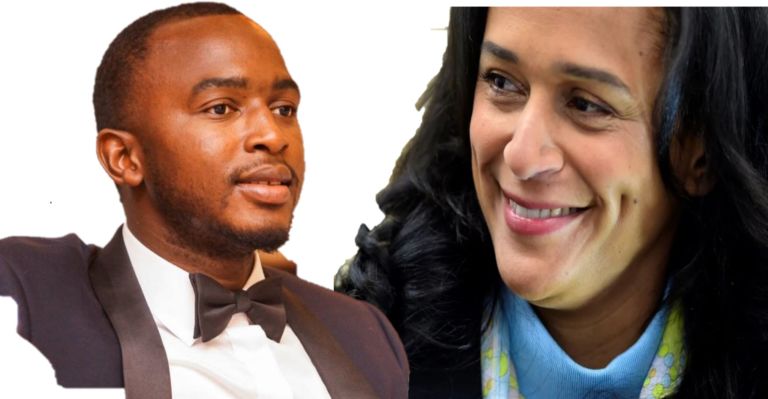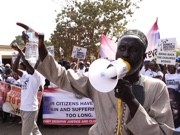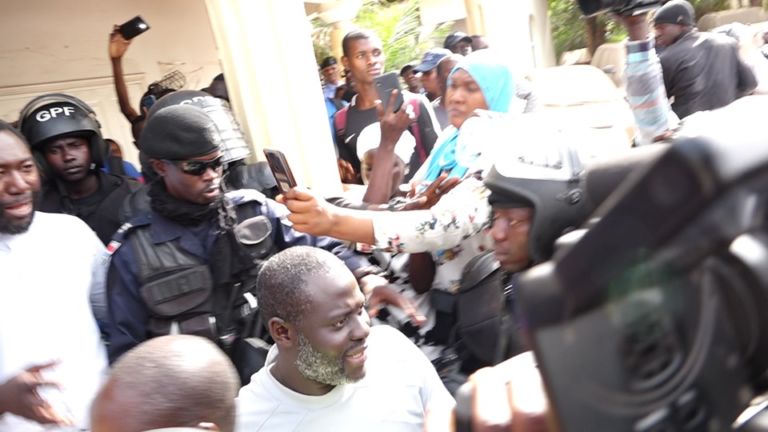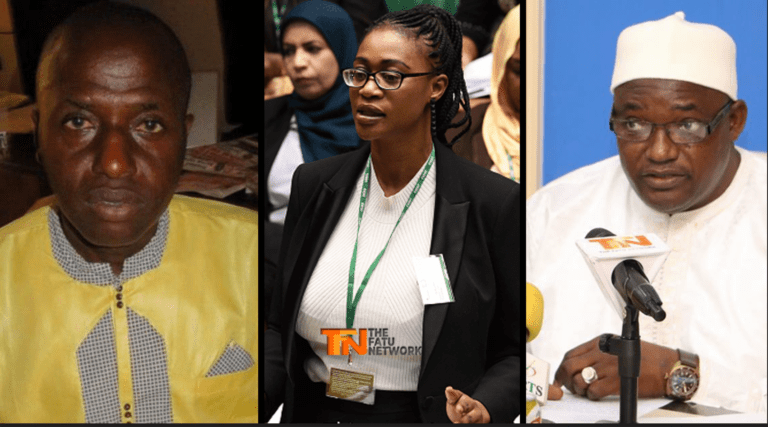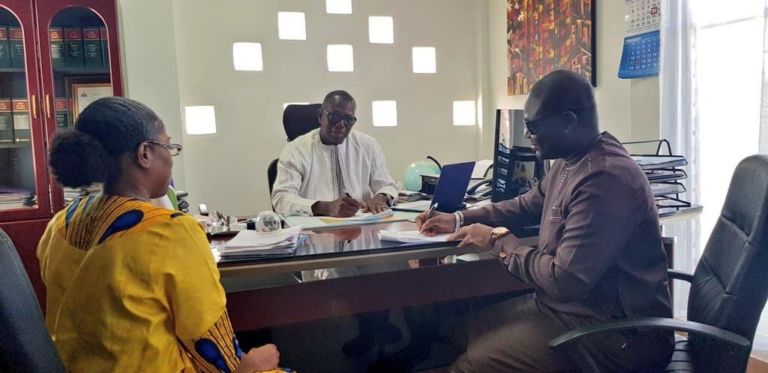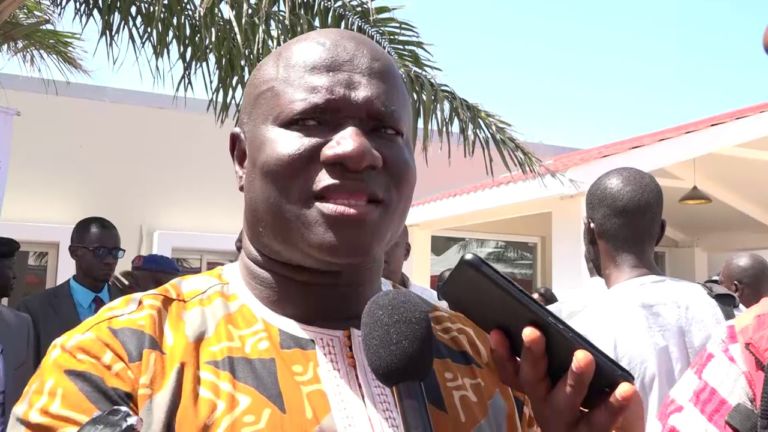With mounting interest I follow the debate on whether there is authorisation under the 1997 Constitution of the Republic of The Gambia (“the Constitution”) for His Excellency, Adama Barrow, President of the Republic of The Gambia, to fire the Honourable Ya Kumba Jaiteh (“Jaiteh”) as a nominated member of the National Assembly.
Is there indeed incontrovertible authorisation for the President to nominate National Assembly members, or is section 88(2) nullified, or at the very least seriously called into question, by section 96 of the Constitution, on the one hand, and by accepted principles of democratic constitutional theory and practice on the other? According to section 96 (1), “there shall be a general election of all members of the National Assembly which shall be held four months after the date of election of office of the President”.
What schizophrenic Constitution!
Our Constitution is a disaster for even the theoretical underpinnings of democratic pluralism, effectively emasculating, as it did, the National Assembly, and Judiciary, by reducing these constitutional pillars of the state to mere appendages of the Executive through the unjustifiable centralisation of all power in the President. Be that as it may, the Constitution remains valid and I approach the Jaiteh controversy in that context.
The Jaiteh saga is a spectacular rerun of Ramzia Diab’s firing in 2004 by our eminent man of letters doubling as President of the Republic. Entering the ring on the side of his employer, then Attorney General S T Hydara postulated the highly questionable assertion that “the drafters of the Constitution were no fools”. Writing out of the jurisdiction, I advanced the counter contention that the “drafters were clearly no visionaries for saddling us with a document which must be revamped in the Gambia’s impending Third and final Republic as its general thrust was inimical to both the doctrine of the rule of law, and the concept of the separation of powers”.
Witness the establishment of the Constitutional Review Commission!
Some fifteen years later, and a peoples revolution as backdrop, our nation is faced with an incomprehensible replay of the Ramzia affair under circumstances more egregious and unjustified than that original Executive misadventure into forbidden terrain.
Without question, the Constitution’s convoluted nature is a glaring manifestation of its perverse intent. In a laughable, if tragic way, the hope was nurtured that this may constitute a blessing in that under properly mounted challenges against routinely arbitrary Executive conduct, the courts will find it impossible to anchor sensible and defensible decisions favouring any President in this greatly compromised and labyrinthine document.
That hope is clearly misplaced as spectacularly demonstrated by the Supreme Court in its interlocutory decision in the Jaiteh saga!
In the debate that ensued over Ramzia’s dismissal, the late legal luminary, Pap Ousman Cheyassin Secka of respected memory – in his defence of the President – refers to the entrenchment of separation of powers in the Constitution. Then as now, I wonder which document that postulation refers to. The preamble is not a part of any Constitution, and even where it would ordinarily constitute a true reflection of the letter and spirit of the main document, it has no edifying character as regards our law of laws.
As in 2004, my interest in the Jaiteh saga is public spirited and constitutionally focused. But how little times have changed! In reaching their conclusion on the legality of Ramzia’s dismissal, then Attorney General, and Cheyassin, that late giant of jurisprudence, contended that there is a universal “age-long aphorism that he who has the power to hire also has the power to fire”.
Then as now, I emphatically reject that proposition as a principle of general application.
Under both constitutional theory and practice in a proper system of democratic governance, a president who nominated, and, or, appointed, a NAM, or Judge, should become functus officio on the basis of the doctrinal logic that a particular hiring traverses constitutional demarcations.
In other words, he should have no authority whatsoever to fire either NAMs, or judicial officers ranging from Magistrates, to Justices of the Supreme Court. In similar vein, constitutionally envisaged independent agencies like the Independent Electoral Commission must reside outside the purview of presidential influence. This is not to suggest that these categories of officers are exempt from legitimate control mechanisms, but that they must not be subjected to the whims of the Executive as preeminent wielder of the police power. Once appointments are made in these areas, there must be no removal powers available to the President as an individual.
As demonstrated by the overwhelming public interest in the Jaiteh saga, the values at play constitute the silent tributaries along which the streams and rivers of democratic life flow to the great seas and oceans of personal conscience and freedom. We must learn to restrain our leaders within the boundaries of legality and their legitimate authority. The presidency is a majestic office with awe-inspiring powers, but that notwithstanding, it is a short-term tenancy, and a tenant must not have the capacity to destroy the landlord’s estate. As landlords, our estate, The Gambia, its nurture along the paths of tolerance and pluralism, must remain our supreme project.
It is common territory that the Constitutional text is silent on how a nominated NAM should be unseated. In that case we must step outside the document to examine the architecture of democratic governance and the underpinnings of republicanism with its entrenched values of limited government anchored in separated power and the rule of law.
On a straight application of the doctrine of separation of powers, the President can have no authority to fire a NAM. Notwithstanding baseless assertions by some commentators, the powers under sections 167, and 231(5) are not triggered as a NAM – nominated or otherwise – is not a public office, thereby making it unnecessary to refer to the Interpretation section at 230 as Jaiteh is explicitly excluded from holding a public office by section 166 (4) (a) of the Constitution.
It is indeed instructive that Jaiteh’s dismissal, communicated through no less a figure than the Secretary General – that great supervisor of the Public Service, sounding board of the President, and his preeminent confidant in normal times – relied on no authority other than a baseless Executive Directive for such a momentous missive. It was disconcerting for the SG to convey a Directive of such magnitude without anchoring it in any legal provision. The holders of the great offices in public service must learn to say no when occasion demands.
Even a casual reading of Chapter XI, sections 166-171, provide insight into the Constitution’s understanding of public office, especially at: 168, on Head of Civil Service; 170, on Restriction of Political Activity; and 171, on Retiring Age. The perversity of the Constitution to clothe the Executive with power to micromanage every aspect of national life has needlessly triggered a constitutional crises in the Jaiteh affair. The document is proving to be a minefield, especially considering the plethora of superficial analysis against the clear command of section 166 (4) (a).
In similar vein, the attempt by some commentators to categorise Jaiteh’s purported dismissal as the functional equivalent of an electoral recall is clearly unworkable considering there must be legislation to activate the recall provision in the Constitution. Even assuming that this provision is available to the President – and it is not – the Constitution suggests that it must be a serious matter as one third of registered voters in a constituency must support the recall petition.
What did Jaiteh do? Absolutely nothing going by the letter from the Secretary General! If indeed the Constitution authorises the President to nominate one in every ten members of the National Assembly, the fate of this category of member must not be left to chance as sooner or later a political relationship in a developing democracy like ours is bound to poisonously collapse.
In the Constitution, power is theoretically separated between the Executive, the Legislature, and what the document itself calls the Judicature. Globally, these are the traditional demarcations in constitutional democracies. The abiding principle is that power must not be concentrated in one branch of government, a philosophical position triggered by the conduct of the mighty monarchs of Europe in the long stretch of history to the Enlightenment, also known as the Age of Reason. “Enlightenment thinkers in Britain, in France and throughout Europe questioned traditional authority and embraced the notion that humanity could be improved through rational change”.
Enlightenment thought was the inspiration and precursor of the great and hugely transformative revolutions in America and France in the eighteenth century, an era when absolute power was fully located in European monarchies. The clamour for diffusing power led to the establishment of the legislature and the judiciary as independent arms of government. Then as now, it was always the Executive that needed restraining due to its centrality to public life and same applies in the Gambia of modern times.
When a president is accorded authority and opportunity to overreach he will do so and that is a historical fact. A brilliant example was the relationship between President Eisenhower and Earl Warren, his nominee to the US Supreme Court. Both were blue blooded Republicans but on the bench of its hugely influential Supreme Court, Warren stood for America and its enduring values of equality before the law as enshrined in the pivotal and liberalising fourteenth amendment to the U S constitution. Eisenhower referred to his appointment of Warren as “the biggest damn fool thing I ever did”.
When in later years he was asked whether he made any mistakes, Eisenhower eagerly answered “Yes: two. And they are both sitting on the Supreme Court”. The other mistake was William Brennan Jr., one of the great liberal jurists to sit on the Court in the twentieth century. Like Warren, and Brennan, to Eisenhower, Jaiteh too owes President Barrow nothing. Her loyalties must first and foremost be to The Gambia and her dismissal as a NAM on the grounds of disloyalty was wrongful and regrettable.
The closest thing to our nominated NAMs is the United Kingdom House of Lords. After nomination by the political leadership and appointment by the monarch, the appointing authority became functus in the fortunes of a member of the Lords. Any removal must be done within the rules of the Lords but not by an unhappy political leader or monarch.
About unhappiness and redress, Jaiteh went to the Supreme Court for a declaration of the invalidity of the President’s attempt to remove her as a NAM. She also asked for a restraining order to forestall the wrongful swearing of her replacement. Although a decision on the substantive question remains pending, her application for a restraining order was refused on the grounds of “… the presumption of regularity of all official acts [and] the applicable principles of law relating to the grant of interim restraining orders”.
The Supreme Court was wrong in its conclusion.
The decision was a Judicial Directive in that offered no reasoning on what it meant by “… the presumption of regularity of all official acts [and] the applicable principles of law relating to the grant of interim restraining orders”. Jaiteh went into the Court whole and came out reduced. She came back empty handed and shackled by the weapon she pleaded with the Court to interpose between her and her traducers.
For the benefit of the reading public, there are settled principles around the grant or refusal of interlocutory injunctions/restraining orders. It is of course an accepted legal position that the grant or refusal of an interlocutory injunction lies squarely within the jurisdiction of the Court (Madikarra Jabbi v Alhagie Lansana Sillah (2014-2015) GSCLR 246, at 253. An injunction is an equitable relief and consequently it is granted at the discretion of the court. It is not granted as a matter of grace. The discretion must be exercised judiciously and judicially” (see Ayorinde v AG Oyo State (1996) 2 SCNJ 1998).
The Court’s discretion notwithstanding, a judicious application of that discretionary power based on law and reason anchored on the particular facts before the Court is expected (Madikarra Jabbi v Alhagie Lansana Sillah (2014-2015) GSCLR 246, at 253. “For a Court to declare whether or not to grant an injunction … it has as of legal necessity to go into the consideration of the competing legal rights of the parties to the protection of the injunctive relief. It is a duty placed on an applicant seeking injunction … to establish by evidence in affidavit(s) the legal right she seeks to protect by the order which of necessity makes it mandatory for the court to go into the facts to determine whether such entitlement has been established” (Aboseldehyde Laboratories Plc v. Union Merchant Bank Limited & Anor. (2013) 54 (Pt. 1) NSCQR 112, at 144).
According to the Gambia Court of Appeal “a discretion is judicially and judiciously exercised if it is done with regard to what is right and equitable in the peculiar circumstances of the case, the relevant law, and is directed by conscionable reasoning of the Trial Judge to a just result” The State v Isaac Campbell (2002-2008) 2 GLR 354).
The Supreme Court offered no reason whatsoever for its conclusion!
In its highly celebrated decision in American Cyanamid Co. Ltd v Ethicon Ltd (1975) 1 AER 504, the widely considered primer on interlocutory injunctions, the United Kingdom House of Lords, as it then was, stated that in considering an application for an injunction, regard should be had to the following:
Legal right
Substantial issue to be tried
Balance of convenience
Irreparable damage or injury
Existence of alternative remedy
Conduct of the parties
That Jaiteh has a legal right in retaining her status as a NAM is clearly uncontested.
On that basis alone, there is compellingly a substantial issue to be tried.
As to the balance of convenience, Lord Diplock, in American Cyanamid Co. Ltd v Ethicon Ltd (1975) 1 AER 504, supra, at 507, states:
… when an application for an interlocutory injunction to restrain a defendant from doing acts alleged to be in violation of the plaintiff’s legal right is made upon contested facts, the decision whether or not to grant an interlocutory injunction has to be taken at a time when ex hypothesi the existence of the right or the violation of it, or both, is uncertain and will remain uncertain until final judgment is given in the action. It was to mitigate the risk of injustice to the plaintiff during the period before that uncertainty could be resolved that the practice arose of granting him relief by way of interlocutory injunction; but since the middle of the nineteenth century this has been made subject to his undertaking to pay damages to the defendant for any loss sustained by reason of the injunction if it should be held at the trial that the plaintiff had not been entitled to restrain the defendant from doing what he was threatening to do. The object of the interlocutory injunction is to protect the plaintiff against injury by violation of his right for which he could not be adequately compensated in damages recoverable in the action if the uncertainty were resolved in his favour at the trial; but the plaintiff’s need for such protection must be weighed against the corresponding need of the defendant to be protected against injury resulting from his having been prevented from exercising his own legal rights for which he could not be adequately compensated under the plaintiff’s undertaking in damages if the uncertainty were resolved in the defendant’s favour at the trial. The Court must weigh one need against another and determine where” the balance of “convenience” lies.
The Supreme Court settled for a Judicial Directive by reaching a conclusion without offering a scintilla of reasoning in support of that result.
On the “…presumption of regularity of all official acts …” it has no relevance to this case.
On whether non-lawyers can competently comment on this matter, I merely state that a Barrister-at-Law designation is not a dispenser of super wisdom or of any wisdom at all. Gambia’s public intellectuals must engage with the public space and help dissect the great issues of the day for the benefit of larger society. I urge them to emulate the likes of Anthony Lewis, legal columnist for the New York Times, “… an American public intellectual and journalist” who covered the United States Supreme Court for his paper. “Early in Lewis’ career as a legal journalist, Supreme Court Justice Felix Frankfurter told an editor of The New York Times: “I can’t believe what this young man achieved. There are not two justices of this court who have such a grasp of these cases”. Eulogizing Lewis, the Dean of Columbia University’s School of Journalism said: “At a liberal moment in American history, he was one of the defining liberal voices”.
I therefore urge our Nieman Fellow, and our Country Representative of the Westminster Foundation for Democracy, among others, to plough on and empower their people.
In his anger, the President wronged Jaiteh and the country he leads. On one of these moonlit nights, I urge him to take a lone walk along the serene grounds amidst the beautiful flowers and trees of the national house he calls home. I urge him to reflect on the rise and fall of the previous tenants-in-chief of that house, to come to terms with his mortality, and the transiency of his office. Let him survey the majesty of the presidency and reflect on the purpose for which he was sent to Number 1 Marina. The monuments we will remember and celebrate him for are not going to be the physical structures he left behind but the unseen symmetric beauty of governance under law.
The President was wrong to purportedly fire Jaiteh, and the Supreme Court was wrong to restrain her whilst refusing her application to restrain her replacement and others from violating her accrued legal rights under colour of law.
Lamin J. Darbo

